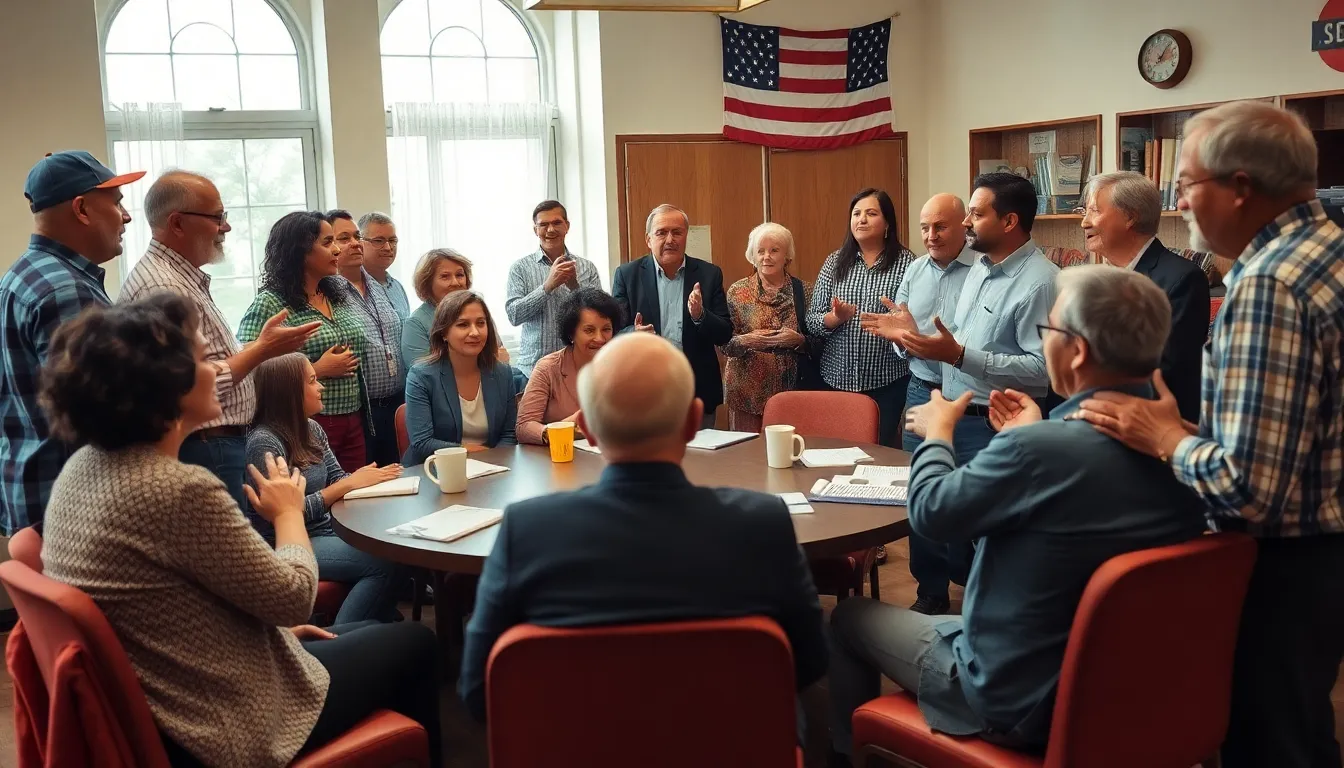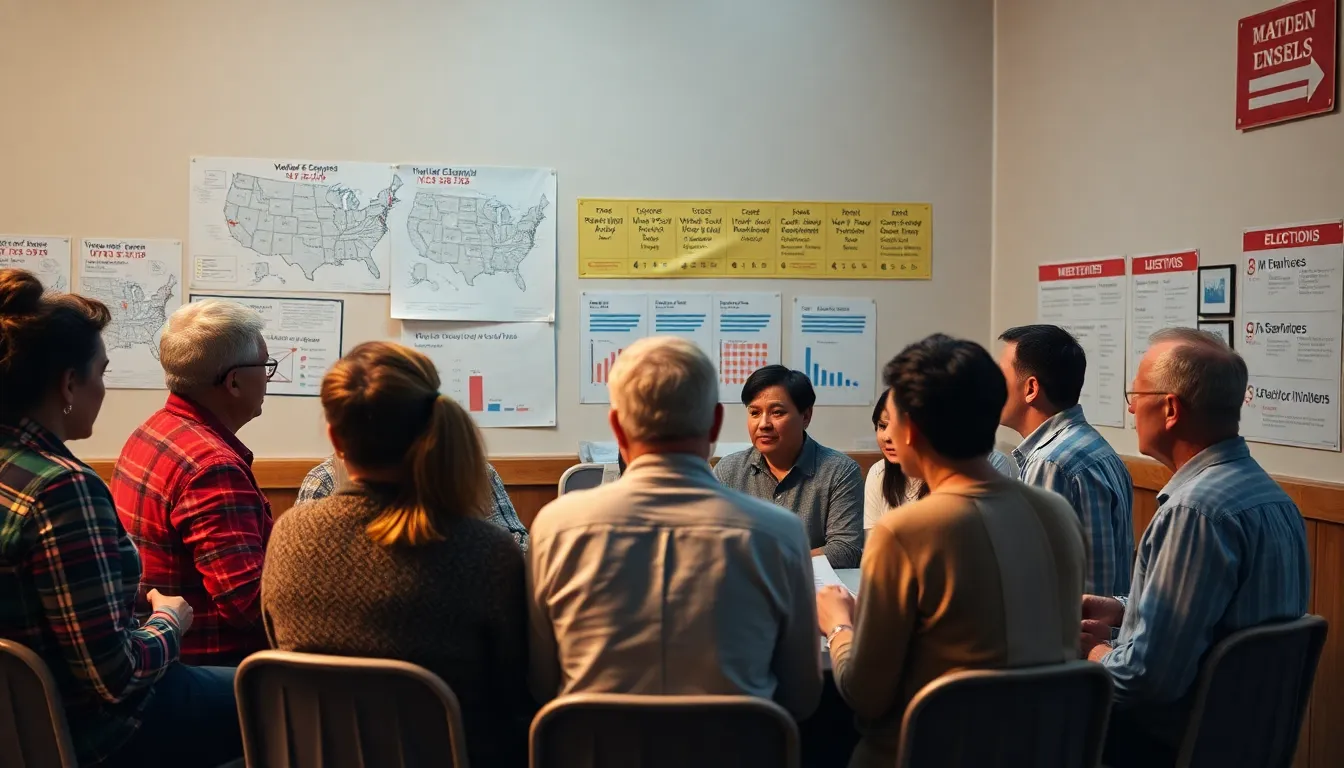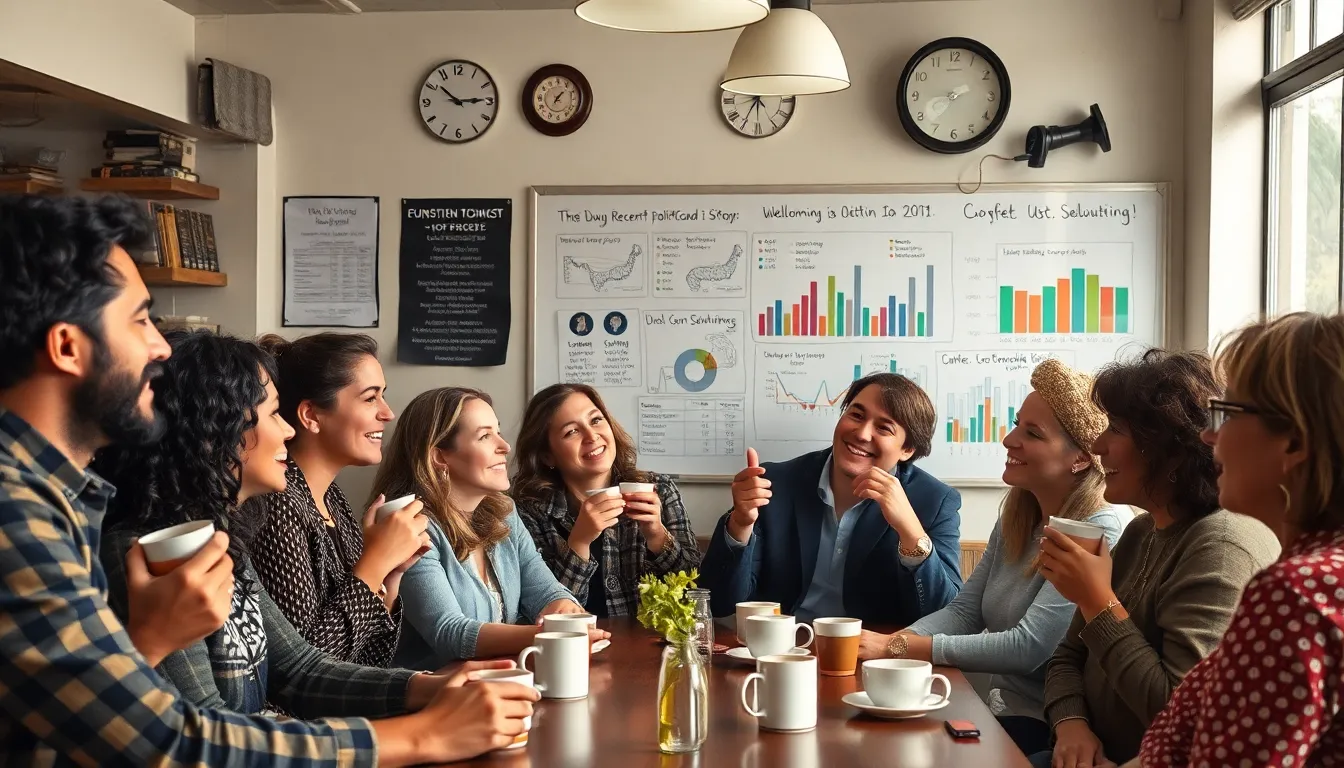Table of Contents
ToggleIn a world where political news can feel like a never-ending soap opera, staying informed is more crucial than ever. With plot twists that rival the best cliffhangers, today’s headlines are packed with drama, intrigue, and enough scandals to keep even the most seasoned gossipers entertained. It’s not just about who said what; it’s about how it’ll impact everyone’s lives, wallets, and the occasional brunch conversation.
Navigating the political landscape can seem overwhelming, but fear not. This article breaks it down in a way that’s both engaging and enlightening. From the latest legislative battles to the quirks of election season, he or she will uncover the stories that matter. So grab a snack, settle in, and prepare to become the most informed person at your next gathering—because let’s face it, who doesn’t want to be the life of the political party?
Overview of Political News
Political news covers diverse topics, including policies, elections, and governmental actions. These stories shape public opinion and influence daily life. Legislation impacts healthcare, education, and taxes, directly affecting millions. Election cycles draw attention with debates, candidate platforms, and voter turnout statistics, presenting crucial information for citizens.
Reports on political scandals or controversies capture interest, showing the human side of politics. Connection to local issues arises as national decisions trickle down to communities. Understanding the political landscape aids people in making informed choices.
News outlets strive to provide balanced coverage, ensuring readers receive multiple perspectives. Analysis of polling data reveals voter sentiment, guiding campaigns and public discourse. Observers notice shifts in party alliances and emerging political movements, which could reshape future elections.
Key events, such as Supreme Court rulings or landmark legislation, warrant close attention. Each development creates ripples through society, from activist responses to policy changes. Staying updated fosters a more informed electorate, essential for a healthy democracy.
Information dissemination through social media and traditional outlets broadens access to political news. Engaging with various platforms promotes critical thinking and informed discussions. Therefore, active participation in political discourse empowers citizens to hold leaders accountable.
Importance of Political News


Staying updated on political news shapes understanding of the societal landscape. Political news influences public opinion and impacts critical areas such as healthcare and education.
Impact on Society
Political actions resonate throughout society. Legislation can alter funding for schools, affecting educational quality. Current events spark dialogue among citizens, fostering awareness of pressing issues. Tabloids and serious news alike cover political scandals, humanizing the complexities behind decisions. Understanding these connections helps individuals navigate their communities and comprehend broader social dynamics.
Role in Democracy
Political news serves as the bedrock of democracy. Voters use this information to make informed choices during elections. An engaged populace holds leaders accountable and influences policy direction. Active discussions surrounding political topics cultivate an informed electorate. Access to diverse viewpoints fuels critical thinking, essential for a healthy democratic process. Voter turnout statistics highlight the importance of participation, emphasizing that every voice matters.
Sources of Political News
Staying informed about political news involves various sources. News outlets, both traditional and digital, play vital roles in shaping public understanding.
Traditional Media
Television remains a dominant source for political news. It provides immediate coverage of events, like debates or press conferences. Newspapers also contribute by offering in-depth analysis and opinion pieces. For instance, major publications often delve into the ramifications of policies. Radio, with talk shows dedicated to politics, delivers real-time discussions that engage listeners. Traditional media aims to maintain credibility and accuracy, though bias can emerge.
Digital Platforms
Social media platforms significantly broaden access to political news. Users engage with posts to share opinions or debate topics. Websites, including news aggregators, compile articles from various sources for easy access. Blogs provide unique perspectives, often highlighting issues mainstream outlets might overlook. Podcasts focus on detailed discussions, allowing audiences to consume news on-the-go. Data reveals that digital platforms increasingly influence public opinion on political matters. They empower users to participate in political discourse and foster understanding.
Trends in Political News
Political news evolves rapidly, influenced by technology and societal changes. Understanding the current trends is essential for grasping the shifting political landscape.
Rise of Social Media
Social media increasingly shapes the way political news is reported and consumed. Platforms like Twitter and Facebook provide real-time updates and foster dialogue among users. Engagement on these platforms often highlights trending topics, allowing voices once marginalized to enter mainstream discussions. Many news organizations now utilize social media to reach wider audiences and promote stories. Instant sharing features enable news to spread quickly, impacting public perceptions and mobilizing action. The immediacy of social media creates a more interactive environment, encouraging citizens to participate actively in political matters, shaping narratives as they unfold.
Fact-Checking Initiatives
Fact-checking initiatives play a crucial role in countering misinformation in political discourse. Organizations such as PolitiFact and FactCheck.org assess the accuracy of claims made by politicians and public figures. These resources provide context and clarification, helping citizens make informed decisions. Media outlets incorporate fact-checking into their reporting to maintain credibility and trust. Transparency in these processes fosters public confidence in journalism. Reliable information empowers individuals to engage responsibly in discussions, contributing to a more informed electorate overall. As misinformation spreads, fact-checking initiatives become indispensable in advocating for accountability and truth in political communications.
Challenges in Political News
Political news faces significant challenges, particularly in the realms of misinformation and media bias.
Misinformation and Fake News
Misinformation spreads rapidly across digital platforms, complicating the landscape of factual political reporting. Individuals often encounter fake news articles or misleading headlines designed to manipulate public opinion. Research from the Pew Research Center shows that nearly 64% of U.S. adults believe fabricated news significantly disrupts factual reporting. Social media’s role in this struggle cannot be understated, as algorithms often amplify sensationalist content over verified facts. Fact-checking initiatives play a crucial role in countering false narratives, helping readers discern credible sources from unreliable ones.
Media Bias
Media bias poses another challenge to political news accuracy and objectivity. Various outlets may lean toward progressive or conservative perspectives, influencing how events are covered. Studies indicate that nearly 80% of Americans perceive significant bias in reporting. Such skewed representations can shape public perception and polarize audiences. Audiences increasingly seek out media channels that align with their views, perpetuating echo chambers. High-quality journalism requires conscious effort from outlets to provide balanced perspectives and thorough reporting on multifaceted issues, directing efforts toward presenting unbiased information amidst competing narratives.



